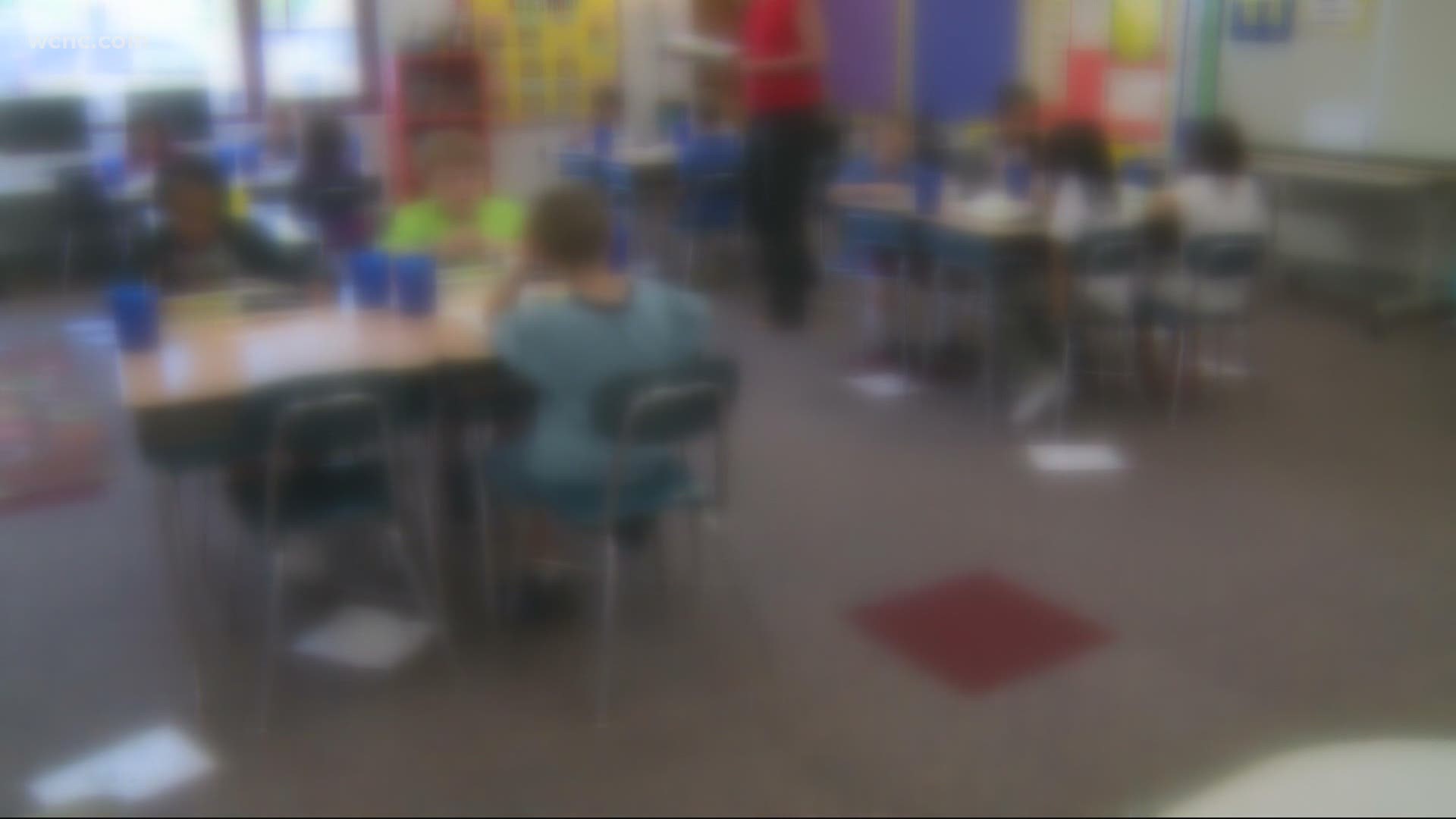CHARLOTTE, N.C. — The Charlotte-Mecklenburg Schools Board of Education will hold a joint meeting with the Mecklenburg Board of County Commissioners Thursday, just two days after CMS voted to revert back to full remote learning due to rising COVID-19 cases in the Charlotte area.
The meeting largely focused on the achievement gap and how the coronavirus has impacted student’s education.
“The inequalities that existed before March of 2020 have been dramatically exacerbated during covid,” said CMS Superintendent Earnest Winston.
Winston said students who relied on the school for food, Wi-Fi and supervision haven’t been able to do as well. Still, as the school board discussed the achievement gap, there are discrepancies that predate the coronavirus.
“I acknowledged that it was tragic that we are not doing better,” said Jennifer De La Jara, a board member with CMS.
During three hours of presentations, the CMS board announced Thursday that in 2016-2017, 66.8% of black third-graders were not career and college ready in English. That year was the most recent statistic presented.
"Why are there so many failing schools in district 2 on the westside of town, and if the numbers were different for white kids not reading, what would you do,” questioned commissioner Vilma Leake. “What will we do for 70% of my children who cannot read? In district 2 on the west side of town, there’s two-tier systems, a black system and a white system. Answer that.”
De La Jara said their goal isn’t to compare students to each other.
“We’re not really looking at trying to get any subgroups to meet a standard of another subgroup, but rather looking at all of our children and setting goals for them to rise above,” De La Jara said.
By comparison, 26.1% of white students were not career and college ready in 2016.
CMS said they have a strategic plan to cut all of those numbers in half by 2024, but commissioner Pat Cotham says students have a right to a good education now.
“They have lost their constitutional right and I don’t know how we look parents in the eye and tell them that it’s going to get 50% better in four years,” Cotham said. “We can’t wait.”
CMS board members said improvement is not an overnight process, and that they could see more improvement with aid and funding from the commission when needed. CMS school board member Rhonda Cheek said the two groups needed to work together to make it happen.
"We’re trying to go from better to good and from good to great, we have the commitment,” Cheek said. “I can tell you now if we all sit here together and place blame and complain to each other, we’re not doing anything to advance the cause of education for our kids.”
The CMS board voted Tuesday to send most students home starting Monday, Dec. 14 through at least Jan. 15, 2021. Some students could return to a mix of in-person and remote learning on Jan. 19.
Some exclusions do apply: High school and middle school students would return to complete end-of-course (EOC) exams in-person; Pre-K children will be offered in-person opportunities in schools or through providers; exceptional children would return home except when their individualized education plan (IEP) calls for in-person instruction.
About 41,000 CMS students were already back to some form of in-person learning as of December, primarily Pre-K and elementary-age students, and those with special needs. More middle and high school students were originally scheduled to return to classrooms immediately after the winter holiday.
Many parents and teachers are pushing for CMS to play it safe and keep kids home, while others say it's better for kids to be in the classroom learning. Currently, there aren't any COVID-19 clusters at any CMS schools, but community spread and positivity rates are increasing across Mecklenburg County.
"Scared is definitely a good way to describe it," said one CMS teacher who asked to remain anonymous. "I'm anxious. The thought of going back to school makes me incredibly stressed and in turn, doesn't make me the teacher that I'm going to need to be for them anyway."
More CMS students than usual are failing this year, and it’s a national trend. Some people are now wondering if this change is hurting them more than it’s helping.
"We don't even have broad transmission in a classroom in order to pull that classroom out, and yet you're recommending imposing further remote learning on our youth,” said Board of Education member Sean Strain.
Thursday's meeting will begin at 1 p.m. WCNC Charlotte will stream the meeting on YouTube, as well as the WCNC Charlotte mobile app.

